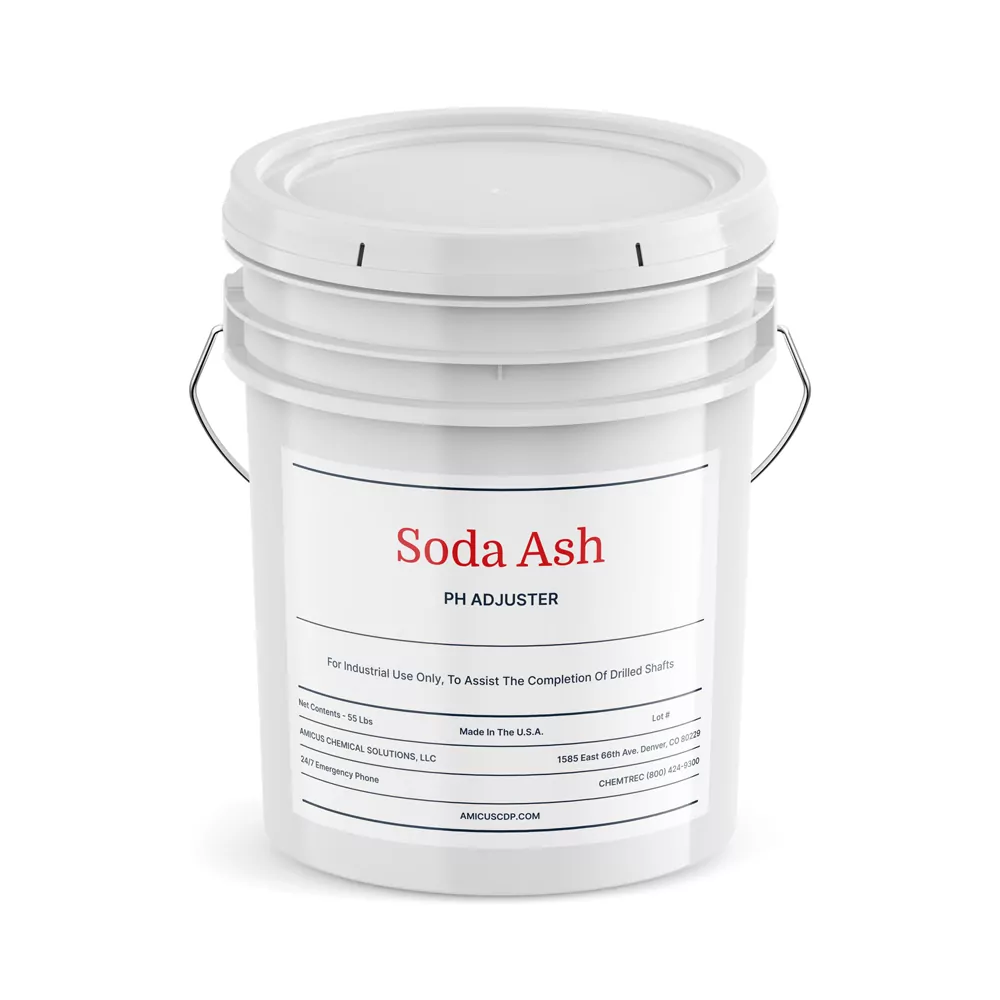Soda ash plays a pivotal role in the construction of tunnels, serving various critical functions from ground stabilization to pH control. It is a versatile and eco-friendly chemical that provides operational efficiency and cost-effectiveness. Its properties make it an essential ingredient in the excavation and maintenance of tunnel stability. Whether it’s for large-scale infrastructure projects or smaller urban developments, understanding the multifaceted applications of soda ash is key for successful tunnel construction. In this article, we’ll explore the various uses and advantages of soda ash for tunneling.
Understanding Soda Ash in Tunnel Construction
Soda ash, chemically known as sodium carbonate, is a natural ally in the arduous process of tunnel construction. Its alkaline nature makes it an excellent agent for pH adjustment, critical in many construction scenarios. During the excavation of tunnels, maintaining the pH balance is vital not only for the structural integrity of the tunnel walls but also for the safety of workers within the confined space.
When mixed with water, soda ash dissolves into sodium and carbonate ions. These ions can interact with acidic soils and underground water, thereby neutralizing any potential acidity that could pose a risk to both the structure and the environment. Moreover, soda ash can help soften hard water, which may otherwise leave mineral deposits that can damage machinery and slow down construction progress.
In addition to pH regulation, soda ash also has properties that make it useful for dust control. By applying soda ash solutions onto tunnel surfaces, the fine particulate matter that could become airborne is captured and weighed down, thereby reducing respiratory hazards. This makes the construction site safer and simplifies compliance with health regulations.
Critical Roles of Soda Ash in Tunnel Excavation
One of the critical roles soda ash plays during tunnel excavation is as a stabilizing agent for the spoil. Spoils, which are the excavated materials, can sometimes be difficult to handle due to their moisture content and structural properties. Soda ash mitigates these issues by adjusting the spoil’s characteristics to make it more manageable.
Furthermore, soda ash plays an important role in the treatment of excavated areas. It can be used to consolidate loose soil and rock formations, thus creating a more stable environment for tunneling operations. This helps prevent collapses and ensures that the tunnel maintains its intended shape during and after the excavation process.
Additionally, the sodium carbonate in soda ash contributes to the setting and hardening of certain types of grout used in tunnel construction. When mixed with grouting materials, soda ash can accelerate setting times and improve the durability and strength of the grout, which is essential for supporting surrounding structures and sealing off water ingress.
Best Practices for Using Soda Ash in Tunneling Projects
Implementing soda ash in tunneling projects requires adherence to certain best practices to harness its full potential. First among these is a comprehensive understanding of the project’s geological conditions. Tailoring the use of soda ash to suit the specific soil and groundwater characteristics can optimize its effectiveness and yield the best results for soil stabilization and pH control.
Correct measurement and application are also vital. Precision in the quantity of soda ash used ensures that it performs its intended function without resulting in material waste or environmental concerns. Specialists often oversee this aspect of the project, bringing technical expertise to the mixing and dispersal processes.
Environmental considerations must also be taken into account. While soda ash is generally regarded as environmentally benign, its application should still be managed to prevent any potential impacts on local ecosystems. This aligns with the growing emphasis on sustainable construction practices within the industry.
Continuous monitoring and assessment are imperative as part of the best practices for using soda ash. Regular checks guarantee that the desired outcomes are being achieved and allow for adjustments where necessary. This dynamic approach prevents issues from escalating and ensures the consistent performance of soda ash in the tunneling project.
Overall, the diverse functions and benefits of soda ash in tunneling projects make it an indispensable component of modern construction. Its economic advantages, coupled with its environmentally friendly properties, provide a forward-thinking solution for the challenges of underground construction. Altogether, the integration of soda ash into tunneling practices marks a stride towards more efficient, cost-effective, and sustainable construction methodologies.


